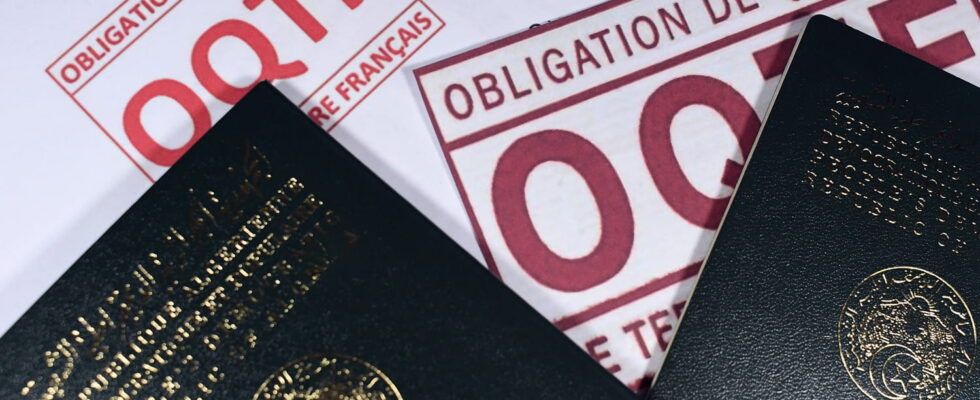The suspect in Philippine’s murder was present in France despite an obligation to leave French territory (OQTF). These expulsions cannot always be applied due to certain obstacles, particularly legal ones.
The obligations to leave French territory (OQTF) regularly spark debate. Especially when a news item highlights a suspect targeted by an OQTF, but still present in France, as was the case with the Lola affair in October 2022 or more recently with the murder of Philippine. The application of these OQTFs is considered insufficient by a part of the political class, particularly the right, and has led to the government being accused of laxity. But the application of OQTFs encounters several obstacles related to the profile of the individual to be expelled as well as to legal or administrative measures.
OQTFs can be issued against people who have entered France or are residing in the country irregularly, i.e. without a valid residence permit. A residence permit that is withdrawn, not renewed, refused or whose duration has expired may result in the initiation of an OQTF. People who represent a threat to public order may also be subject to an OQTF, specify public services. The expulsion must theoretically be applied within 30 days, or without delay in some cases, particularly for delinquents and criminals who represent threats. However, several criteria make it possible to render an OQTF null and void depending on the profile of the person targeted by the expulsion procedure:
- If the person is a minor;
- If she is the parent of a minor French child;
- If she has been married to a French person for more than 3 years;
- If she has been staying regularly in France for 20 years;
- If she has been residing regularly in France for 10 years and is married to a foreign person living in France since the age of 13 or younger;
- If she is the victim of an accident at work, an occupational illness or has a health condition requiring treatment in France.
Other obstacles may prevent the application of an OQTF and are provided for by law. The European Court of Human Rights thus prohibits the expulsion of a person if the latter risks being mistreated once received in and by his country of origin. But the main legal obstacle is that which provides for obtaining a “consular pass”. This document is requested by the French authorities from the country of origin of the expelled person and without it the application of the OQTF is not possible. However, countries systematically or occasionally refuse to issue the pass or leave the requesting country without a response.
If the deadline granted by the OQTF is exceeded or while waiting for a pass, the individuals targeted by the procedure may be temporarily placed in administrative detention centers (CRA) for a maximum of 60 days. The expulsion is then organized by the French authorities. Some extensions may be obtained under certain conditions, in particular if the consular document is late in being sent.
OQTF suspended in the event of an appeal
Persons subject to OQTFs may themselves oppose the expulsion procedure by filing an appeal with the administrative court. The decision may be contested on several grounds: in relation to the residence permit if the individual believes that they can be regularized or in relation to the country of return if they believe that they are in danger there. The deadline for filing an appeal is 15 to 30 days depending on the reasons for the issuance of the OQTF. Once the appeal has been filed, the OQTF is suspended until the court decision, which may be issued after the investigation period ranging from 6 weeks to 3 months.
What explanation for the suspect in Philippine’s murder?
The failure to issue the “consular pass” is what prevented the deportation of the suspect in the Philippine murder case. Since Taha O. was born in Oujda, Morocco, but did not have any identity papers, a “request for recognition for the purpose of issuing a pass” was sent to the Moroccan kingdom. Three requests were communicated between June 18 and August 27, but none received a specific response. The Parisian.
During this time, the suspect had been held at the Metz CRA since June 20, the date of his release from prison. His stay at the CRA was renewed three times, but the fourth request for an extension was rejected by the judge of liberties and detention. The magistrate acknowledged that the suspect “had endangered the safety of people” and that “the risk of repeating criminal acts, and therefore the threat to public order, cannot be excluded”. But given the silence of the Moroccan authorities, the judge also considered it impossible to ensure the receipt of the pass and the effective expulsion of the individual within 15 days and ordered his release from the CRA. The man remained under house arrest, but never complied with this obligation.
